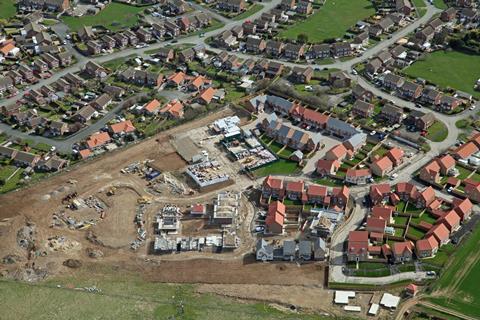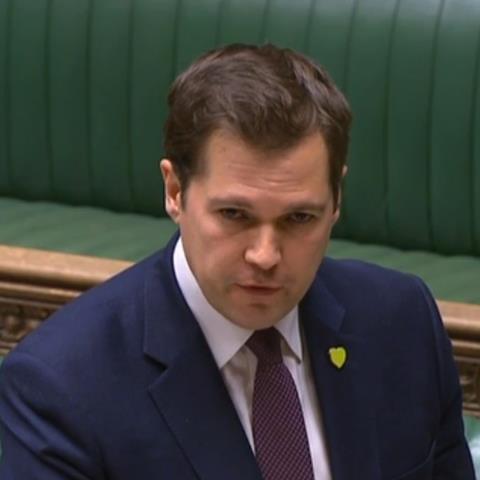Former head of the civil service says changes could trigger a ’return to mono-tenure estates’
The former head of the civil service Lord Kerslake has joined the chous of criticism of the proposed planning reforms laid out in this month’s white paper, saying they risk a “return to mono-tenure estates” and won’t deliver more homes.

The crossbench peer and chair of housing association Peabody said the existing planning system was not stopping more homes being built. Writing in Building Design’s sister title Housing Today he argued reforms such as those outlined could actually reduce the delivery of affordable housing and “have a significant impact on the quality of new homes in the future”.
At the start of the month the government set out proposals under which land zoned for “growth” would benefit from automatic outline planning permission, which would prevent authorities from contesting the principle of an individual application. In addition, the government said it will scrap the existing system of section 106 and CIL contributions, to replace them with a flat-rate levy paid at point of occupation of homes.
The proposals have been welcomed by developers, but criticised by some environmental groups and professional bodies, with RIBA president Alan Jones saying they had the potential to lead to the next generation of slum housing.
Kerslake, who was chief executive of the forerunner of housing quango Homes England prior to becoming head of the civil service, said the abolition of section 106 jeopardised the delivery of affordable housing.
Adding that section 106 delivered around half of all affordable homes last year, he said: “For me, this [abolition of section 106] poses a real risk to new social housing delivery as part of high-quality, mixed-tenure schemes in the future.
“With commuted sums you do not get genuinely mixed development but end up with segregated communities. A return to the mono-tenure estates of the past should be resisted by everyone concerned with the built environment.”
Kerslake described the fact the 84-page white paper did not once mention the need for genuinely affordable rented homes as a “startling and troubling omission”.
He welcomed the government’s commitment to home ownership but said: “I do not support taking money earmarked for desperately needed sub-market rented homes for vulnerable people and using it to give a discount to home buyers.”

Refuting the idea that the planning system overall was holding up the delivery of more homes, Kerslake said the current system delivered planning approval in the vast majority of cases, in the time allotted, and that around a million existing permissions were unimplemented. Instead he pointed to the conclusion of the government-commissioned Letwin Review, that the market absorption rate of new homes for sale was the biggest limiting factor on increasing housing delivery.
He said: “Increasing supply, reducing demand, and lowering house prices is not on [housebuilders’] agenda. This is not a criticism of the private sector, it is just an observation of the reality.”

Launching the white paper, housing secretary Robert Jenrick said the “once-in-a-generation” reforms would cut red tape and “lay the foundations for a brighter future, providing more homes for young people and creating better-quality neighbourhoods and homes across the country”.
However, with the white paper facing opposition from a number of sources, one of the government’s advisors on the paper, planning barrister Christopher Katkowski QC, last week hit back at critics of the proposals, saying the plans had been “mischaracterised” and that the accusation the reforms will lead to slums was “crass”.
He said: “In fact the proposals would create a charter for building places where we would be proud to live; of all the things that have been said by critics, the ’slums of the future’ comment is the most absurd”.
The planning white paper follows on from a significant expansion of permitted development rights by the government, which the Town and Country Planning Association has also said will lead to the creation of the “slums of the future”.
















2 Readers' comments